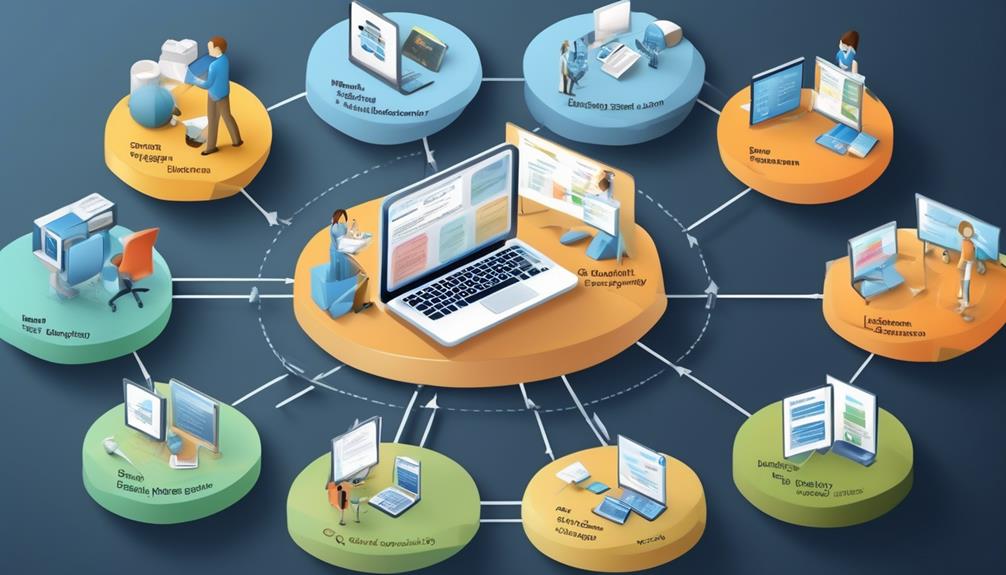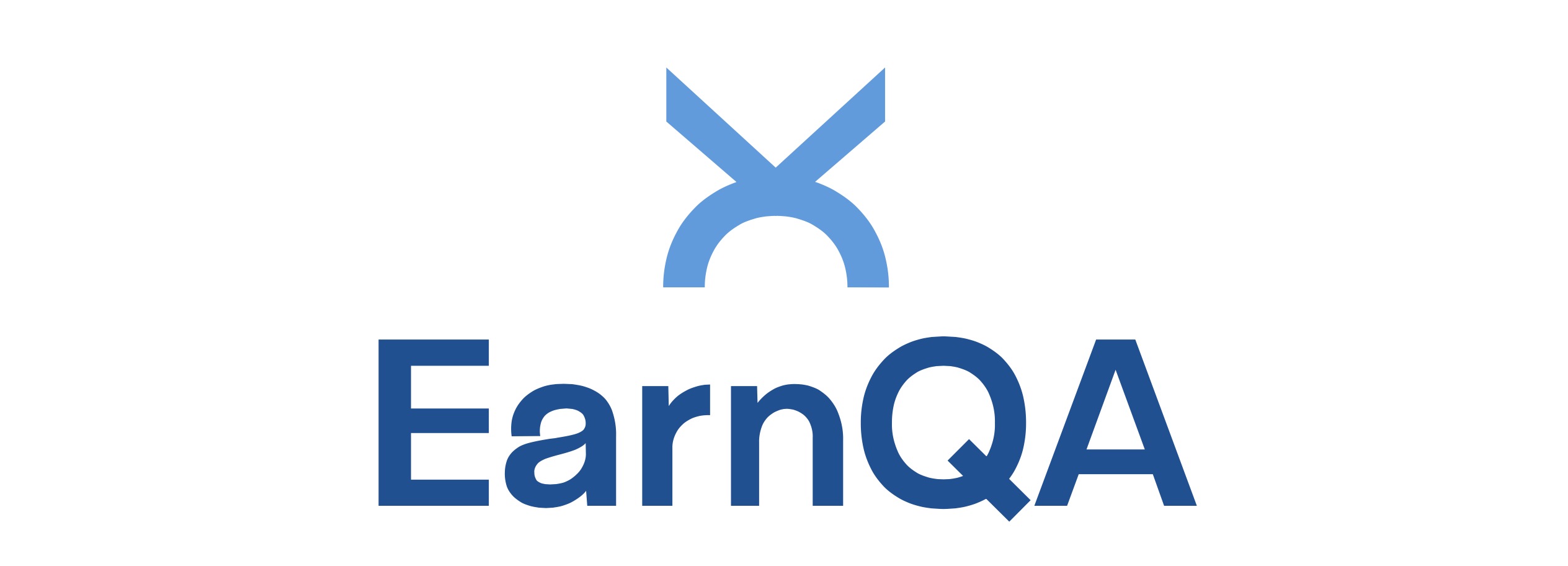SQA Techniques and Tools
Unveiling the Role of a Software Quality Assurance Engineer: Skills, Salary, and Career Prospects
A software quality assurance engineer ensures that software meets quality standards. They test products, identify issues, and work with development teams to improve software quality.

As professionals in software quality assurance, we all know the frustration of encountering a bug-laden application or confronting a software malfunction that disrupts our workflow.
Have you ever wondered about the meticulous work that goes into ensuring such issues are minimized?
The role of a software quality assurance engineer is crucial in the realm of software development, but what exactly does it entail?
From safeguarding the seamless functionality of software products to collaborating with diverse teams, the responsibilities of a software quality assurance engineer are multifaceted and essential for delivering high-quality software products.
Key Takeaways
- Software Quality Assurance Engineers develop and execute software test plans to identify and address software problems and causes.
- Collaboration with software developers is crucial to understand the intricacies of the product under development.
- The use of automated testing tools is prioritized to streamline the testing process.
- Staying updated on industry trends and best practices is essential for effective software quality assurance.
Responsibilities of a Software Quality Assurance Engineer
To ensure the quality of software products, a Software Quality Assurance Engineer develops and executes software test plans to identify and address software problems and causes. These test plans are crucial for maintaining the high standards expected in software development.
As Software Quality Assurance Engineers, our responsibilities include collaborating with software developers to understand the intricacies of the product under development. This collaboration is essential for creating effective test plans that cover all aspects of the software.
We also prioritize the use of automated testing tools to streamline the testing process and ensure comprehensive coverage. By staying updated on the latest industry trends and best practices in software quality assurance, we continuously improve our testing processes and methodologies.
Our primary focus is on conducting thorough testing and analysis to guarantee the quality of the software. Additionally, we're dedicated to resolving defects and ensuring that the final product meets the predefined quality standards.
In essence, the responsibilities of Software Quality Assurance Engineers are integral to the success of product development, as we're the guardians of software quality.
Skills Required for a Software Quality Assurance Engineer

As Software Quality Assurance Engineers, we apply our proficiency in designing and executing software test plans to identify and address software problems and defects, which sets the foundation for the skills required in this role.
Strong collaboration skills are essential for effective communication and teamwork with software developers and cross-functional teams. A continuous improvement mindset is crucial to enhance testing processes and methodologies, ensuring the delivery of a high-quality product. Additionally, staying updated with industry trends and best practices in software quality assurance is imperative to maintain the relevance and effectiveness of our work.
Problem-solving skills are fundamental for recognizing, analyzing, and resolving software issues and defects. This involves a deep understanding of the software development process and the ability to adapt to the dynamic nature of software development. Moreover, expertise in creating and executing both manual and automated test scripts is indispensable for a Software Quality Assurance Engineer. Proficiency in utilizing automated testing tools and frameworks is vital in ensuring efficient and comprehensive test coverage.
Educational Requirements for a Software Quality Assurance Engineer
Educational requirements for a Software Quality Assurance Engineer typically include a preference for a bachelor's degree in computer science or a related field. While specific educational requirements may vary based on the job and industry, a strong foundation in computer science provides the necessary knowledge for this role. Understanding the entire software development life cycle is crucial, as it enables QA Engineers to effectively contribute to the testing and quality assurance processes. Additionally, familiarity with automation tools is highly beneficial as it enhances the efficiency of testing procedures and aids in identifying software defects.
| Skills | Description |
|---|---|
| Bachelor's Degree in Computer Science | Provides a strong foundation in programming, algorithms, and software engineering principles. |
| Testing and Quality | Understanding of various testing methodologies and quality assurance processes. |
| Automation Tools | Proficiency in utilizing automation tools for testing procedures. |
| Software Development Life Cycle | Familiarity with the entire software development life cycle. |
| Software Defects | Ability to identify and address software defects effectively. |
Acquiring these educational competencies equips individuals to excel as Software Quality Assurance Engineers, ensuring their ability to contribute effectively to the development and delivery of high-quality software products.
Importance of a Software Quality Assurance Engineer

The role of a Software Quality Assurance Engineer is pivotal in ensuring the reliability and functionality of software products. Software Quality Assurance Engineers (QA) ensure that the software meets the predefined quality standards by meticulously designing and executing test cases. Their importance lies in their ability to diagnose problems early in the development process, thereby preventing issues from reaching the final product.
This contributes significantly to the overall success and reputation of the software product or company. By reducing the risks and costs associated with software failures, they play a crucial role in maintaining customer satisfaction and loyalty. Additionally, their work directly impacts the improvement of user experience, as they contribute to the identification and resolution of defects or issues in the software.
Furthermore, they play a vital role in the continuous improvement of software development processes and methodologies, ensuring that the software is of high quality and performs reliably. Thus, the importance of Software Quality Assurance Engineers can't be overstated in today's software-driven world.
Workplace of a Software Quality Assurance Engineer
In the workplace of a Software Quality Assurance Engineer, our collaboration with software developers remains central to resolving defects and enhancing software quality, ensuring the seamless transition from development to testing. Our work environment is dynamic and detail-oriented, focusing on ensuring that the software meets high-quality standards.
Here are three key aspects of our workplace:
- Collaboration with Software Developers: We work closely with software developers to understand the intricacies of the software being developed, identify potential defects, and provide valuable feedback for continuous improvement.
- Execution of Software Test Plans: We meticulously develop and execute software test plans to identify and rectify software problems. Our detailed approach ensures that the software is thoroughly tested to meet quality benchmarks.
- Continuous Learning and Improvement: In our workspace, staying updated on industry trends and best practices in software quality assurance is crucial. We constantly strive to improve testing processes and methodologies to maintain high software quality, making our workplace a hub of continuous learning and improvement.
As Software Quality Assurance Engineers, our workplace demands a strong foundation in computer science, a keen eye for detail, and a dedication to ensuring that the software meets the highest quality standards.
Frequently Asked Questions
What Does a Software Quality Assurance Engineer Do?
We ensure software quality by:
- Developing and executing test plans to identify problems and causes
- Collaborating with developers to address defects
- Staying updated on industry trends
Our role involves:
- Conducting thorough testing and analysis
- Continuously improving testing processes and methodologies
We are:
- Detail-oriented, systematic, and precise in our approach
- Always striving for mastery in the field of software quality assurance.
What Is the Role of Software Quality Assurance?
The role of software quality assurance is paramount in ensuring pristine products. We meticulously monitor and measure the software's quality, assiduously identifying and addressing any anomalies.
Our diligent efforts yield superior software, satisfying the stringent demands of the industry. We persistently pursue perfection, continuously refining our testing processes to maintain peak performance.
Our paramount goal is to provide flawless software, perpetually pushing the boundaries of quality assurance.
What Are the Qualifications for QA Engineer?
Qualifications for QA engineers include:
- A bachelor's degree in computer science or a related field
- Familiarity with the software development life cycle
- Strong communication skills
- Problem-solving mindset
- Critical thinking skills
- Understanding of programming languages and frameworks
- Experience in software testing and quality assurance
We prioritize these qualifications to ensure:
- Effective problem diagnosis and rectification
- Seamless collaboration
- Comprehensive understanding of software development processes.
What Is the Salary of QA Engineer or Software Engineer?
We are pleased to report that the median salary for a QA Engineer or Software Quality Assurance Engineer was $90,270 in 2018, reflecting a well-compensated profession.
However, salary can vary based on factors such as experience, location, and industry.
Despite this, there's potential for significant career growth and advancement in this field, highlighting the importance of ensuring top-quality software products.
Professional organizations and networking opportunities can provide valuable connections and job opportunities.
Conclusion
In conclusion, a software quality assurance engineer is like the guardian of a digital fortress, tirelessly working to ensure the strength and reliability of software products.
Their attention to detail and dedication to quality is essential in safeguarding against potential vulnerabilities and ensuring smooth functionality.
Just as a vigilant sentinel protects a castle from intruders, a software quality assurance engineer safeguards against software flaws, providing assurance and peace of mind to users and stakeholders alike.
Rick, our Software Quality Assurance Writer, is the creative force behind many of our insightful articles and course materials. His unique background in software development, fused with his natural flair for writing, allows him to convey complex QA concepts in a way that is both informative and captivating. Rick is committed to keeping abreast of the latest trends and advancements in software testing, ensuring that our content remains not just relevant, but at the forefront of the field. His significant contributions are instrumental in helping us fulfill our mission to deliver premier QA education.
SQA Techniques and Tools
Revolutionize Your Software Game: The Ultimate Guide to Implementing Quality Assurance!
Implementing quality assurance in software is crucial for a successful product. Learn how to ensure your software meets high standards with our expert guide on implementing quality assurance practices.

Integrating quality assurance into software development is comparable to constructing a sturdy building – crucial for ensuring enduring stability and reliability.
As professionals in the software industry, we understand the critical role that quality assurance plays in ensuring the functionality, security, and overall user satisfaction of our products.
But how exactly do we go about implementing quality assurance in a way that is comprehensive and practical?
Well, let’s explore some key strategies and best practices that can pave the way for successful quality assurance in software development.
Key Takeaways
- Quality assurance in software is important to ensure reliability, functionality, and user satisfaction of the final product.
- QA specialists play a crucial role in maintaining quality and reliability throughout the software development lifecycle.
- Implementing QA in an Agile model involves prioritizing continuous testing and feedback, embracing change, and integrating QA activities into every stage of development.
- Promoting QA company-wide involves embedding QA principles into every stage of the development lifecycle, emphasizing its significance, and fostering collaboration and communication among teams.
Importance of Quality Assurance in Software
Implementing quality assurance in software is essential for ensuring the reliability, functionality, and user satisfaction of the final product. Quality assurance (QA) plays a pivotal role in the software development process, ensuring that the end product meets the highest standards of quality. By incorporating rigorous testing and QA processes throughout the development lifecycle, we can identify and rectify potential issues before they impact the end-user experience. The significance of QA in software development can’t be overstated. It not only safeguards the product against potential failures but also fosters trust and confidence among users.
A proactive approach to QA not only enhances the quality of the software but also saves time and resources in the long run. It helps in preventing major failures in production applications, mitigating damage to brand value, and ensuring user satisfaction. Collaboration between the development team, designers, and clients is crucial for delivering high usability, functionality, and performance. By integrating QA practices into every phase of the development process, we can ensure that the final product not only meets but exceeds the expectations of the users.
Role of QA in Software Development Lifecycle

Throughout the software development lifecycle, quality assurance (QA) specialists diligently oversee each phase to ensure the highest standards of quality and reliability are maintained. The role of QA in the software development process is multifaceted, involving proactive management, quality control, and continuous improvement. The QA process is integrated into the development team, with QA professionals working alongside other team members to uphold the best Software Development Practices and ensure quality management at every step. The table below highlights the key responsibilities of QA specialists during each phase of the software development lifecycle.
Software Development Phase Role of QA Specialists Analysis & Requirement Specification Building an adequate analysis group and preventing quality deterioration Design & Development Preparing for testing and integration, and contributing to the overall quality of the product Testing & Deployment Conducting smoke testing, fitting QA in the Agile Model, and ensuring smooth deployment
Implementing QA in Agile Model
In the Agile Model, integrating QA activities into every stage of the development process is crucial for ensuring high-quality software. When implementing QA in Agile Model, it’s essential to prioritize continuous testing and feedback, embrace change, and adapt QA processes to meet evolving requirements and customer needs.
Collaboration between QA, developers, and stakeholders is encouraged to promptly address any issues and ensure quality. The iterative approach of Agile Model allows QA to provide ongoing feedback and support, ensuring the final product meets quality standards and user expectations.
By integrating QA activities into every stage of the development process, Agile Model promotes fast and frequent delivery of high-quality software.
- Prioritize continuous testing and feedback
- Embrace change and adapt QA processes
- Encourage collaboration between QA, developers, and stakeholders
- Utilize the iterative approach for ongoing feedback and support
- Integrate QA activities into every stage of the development process
Promoting QA Company-Wide

How can we instill a culture of quality and integration of QA throughout our organization’s software development process?
Promoting QA company-wide requires a concerted effort to embed QA principles into every stage of the software development lifecycle. By emphasizing the significance of QA in delivering quality products or services, we can foster a culture that prioritizes best practices and specific quality goals.
Encouraging collaboration and communication among development, testing, and business teams is essential to ensure that QA is integrated seamlessly into the process. Continuous training and education for all employees are crucial to establish a shared understanding of QA principles and practices, enabling us to better meet the assurance of software quality.
Clear metrics and KPIs should be established to measure the impact of QA on the overall quality of the software and customer satisfaction. Additionally, promoting proactive problem-solving and feedback loops will enable us to continuously improve QA processes and standards across the organization.
Embracing test automation and encouraging a mindset focused on delivering quality will further reinforce the integration of QA company-wide.
Guide to Software Quality Assurance
To establish a comprehensive guide to Software Quality Assurance, we must build on the foundation of promoting QA company-wide by incorporating specific methodologies and best practices into our software development process.
When it comes to guiding Software Quality Assurance, it’s vital to emphasize the primary goal of QA in software, which is to make sure that software products meet specified requirements and maintain high product quality.
Here’s a detailed guide to Software Quality Assurance:
- Implementing Risk Management: Identifying potential risks and developing strategies to mitigate them is crucial in QA.
- Developing Comprehensive Test Cases: Creating thorough test cases ensures that all aspects of the software are rigorously tested.
- Prioritizing Automated Testing: Automation can significantly enhance the efficiency and effectiveness of the testing process.
- Integrating QA Throughout the Development Lifecycle: QA should be present in every phase, from analysis to deployment, to ensure continuous quality improvement.
- Monitoring Non-Functional Requirements: Quality Control activities play a significant role in ensuring that non-functional requirements are met, through monitoring and maintaining test plans.
Frequently Asked Questions
How Do You Implement Quality Assurance Process?
We implement the quality assurance process by:
- Defining clear standards
- Creating a comprehensive QA plan
- Conducting early and frequent testing
We also utilize various testing techniques to cover different aspects of the software. Additionally, we prioritize defects and issues for improvement based on their impact on product quality and user experience.
This ensures that our software development process is thorough and effective in delivering high-quality products.
How Do You Ensure Quality Assurance in Software?
Ensuring quality assurance in software involves meticulous testing, early defect identification, and continuous collaboration. We prioritize thoroughness and precision to guarantee top-notch software performance.
Our approach involves leveraging diverse testing techniques and integrating robust automation to streamline the process. By emphasizing proactive defect management and cross-functional teamwork, we uphold our commitment to delivering high-quality software.
This comprehensive strategy is crucial in maintaining the excellence our clients expect from us.
How Do You Implement a QA System?
We implement a QA system by:
- Establishing a comprehensive plan
- Prioritizing test cases
- Integrating QA into every software development phase
We focus on:
- Proactive prevention
- Compliance with SQA standards
- Encouraging a proactive approach to QA
Our commitment to providing high-quality software is demonstrated through relevant certifications.
This methodical approach ensures that QA is ingrained in our software development lifecycle, facilitating the proactive identification and resolution of potential issues.
How Do I Create a Software Quality Assurance Plan?
We create a software quality assurance plan by developing a comprehensive SQA plan outlining procedures, measures, roles, responsibilities, and testing types.
We implement early and frequent testing, use various testing techniques, and prioritize defects for improvement.
We also clearly define quality standards and criteria, and evaluate the results to make necessary changes.
Understanding the difference between Quality Assurance, Testing, and Quality Control ensures a holistic approach to quality.
Conclusion
In conclusion, implementing quality assurance in software is like building a strong foundation for a skyscraper. It ensures that the software is reliable, efficient, and meets user expectations.
By integrating QA into the development lifecycle and promoting it company-wide, we can guarantee high-quality software products that satisfy customer needs.
Quality assurance is the key to delivering successful and dependable software solutions.
Rick, our Software Quality Assurance Writer, is the creative force behind many of our insightful articles and course materials. His unique background in software development, fused with his natural flair for writing, allows him to convey complex QA concepts in a way that is both informative and captivating. Rick is committed to keeping abreast of the latest trends and advancements in software testing, ensuring that our content remains not just relevant, but at the forefront of the field. His significant contributions are instrumental in helping us fulfill our mission to deliver premier QA education.
SQA Techniques and Tools
Mastering the How of Software Quality Assurance: Transform Your Code Today!
Improve your software quality assurance process with these essential tips and best practices. Ensure the reliability and functionality of your software with effective quality assurance strategies.

Are you interested in understanding the important role Software Quality Assurance (SQA) plays in ensuring software products are reliable and high-quality? Let’s delve into the essential strategies and useful tips for incorporating SQA into the development process.
From understanding the basics of SQA to its impact on software projects, we'll uncover the effective implementation strategies that contribute to producing top-notch software.
Join us as we dive into the world of SQA and discover how it can elevate the quality and reliability of software products.
Key Takeaways
- Integration of SQA into the development workflow is crucial for ensuring quality throughout the software development lifecycle.
- Effective implementation strategies for SQA include establishing checkpoints and milestones, collaborating with software engineering activities, and emphasizing formal technical reviews and multi-tiered testing.
- Practical tips for SQA integration include implementing robust change management practices, fostering collaboration with other teams, utilizing a multi-tiered testing strategy, and incorporating SQA standards from organizations like IEEE and ISO.
- SQA has a significant impact on software projects, including enhanced quality control, improved project estimation and resource allocation, optimized engineering activities, increased efficiency, and better overall project outcomes.
Understanding Software Quality Assurance Fundamentals
Understanding the fundamentals of Software Quality Assurance (SQA) involves a methodical analysis of the SQA process, its key aspects, and major activities, emphasizing attention to detail and precision in ensuring software quality. The SQA process encompasses specific quality assurance and quality control tasks, technical reviews, and a multitiered testing strategy. It ensures control of all software work products and changes made to them, and compliance with software development standards. SQA involves error/defect collection and analysis, along with the implementation of change management practices.
SQA focuses on software's portability, usability, reusability, correctness, and maintainability, as well as error control in software. It follows a quality management approach, employs formal technical reviews, and uses a multi-testing strategy, effective software engineering technology, and measurement and reporting mechanisms. Major SQA activities include creating an SQA Management Plan, setting checkpoints, measuring change impact, utilizing multiple testing strategies, and maintaining good relations with other project teams.
The benefits of SQA include producing high-quality software, saving time and cost, improving reliability, reducing maintenance needs, and increasing market share, while potential disadvantages involve the requirement for additional resources and workers for maintenance.
Integrating SQA Into Development Workflow

Integrating SQA into the development workflow involves meticulously defining SQA responsibilities, work products, and areas for review and auditing within the SQA Management Plan, ensuring seamless alignment with the software development lifecycle.
The SQA team integrates quality standards, best practices, and SQA responsibilities into the development workflow to ensure that quality assurance and quality control activities are embedded throughout the software development lifecycle.
SQA activities such as formal technical reviews, multi-testing strategies, and change impact measurements are integrated into the requirement gathering, development, and testing phases.
Additionally, testing methodologies, procedures, techniques, and tools are integrated into the SQA plan to support the software development lifecycle and verify the product's alignment with requirements.
Techniques like auditing, reviewing, code inspection, design inspection, and simulation are integrated to validate, identify, and rectify errors, ensuring high-quality software products.
This integration ensures that quality control, testing, and quality assurance activities are synchronized and embedded throughout the software development lifecycle, resulting in the delivery of high-quality software products.
Effective Implementation Strategies for SQA
We meticulously craft a comprehensive SQA Management Plan to guide the effective implementation of software quality assurance, ensuring meticulous attention to detail and alignment with project goals.
The strategies for successful implementation of SQA include:
- Establishing Checkpoints and Milestones: We integrate specific checkpoints and milestones into the Software Quality Assurance Plan to evaluate project performance and ensure that SQA activities align with the project's objectives.
- Collaboration with Software Engineering Activities: We actively collaborate with the software engineering team during requirement gathering and analysis activities, ensuring that SQA is integrated into the Development Life Cycle (SDLC) effectively.
- Formal Technical Reviews and Multi-tiered Testing: We emphasize the importance of formal technical reviews and a multi-tiered testing strategy to identify and address potential issues early in the development process, aiming for a 'release right the first time.'
Practical Tips for SQA Integration

Incorporating SQA activities seamlessly into the software development processes requires precise alignment and meticulous attention to detail. Practical tips for SQA integration involve implementing robust change management practices to ensure its seamless integration into the development lifecycle.
This includes fostering collaboration and maintaining good relations with other teams involved in the project to facilitate SQA integration. Utilizing a multi-tiered testing strategy is also crucial to ensure comprehensive quality control as part of SQA integration.
It's important to incorporate SQA standards from organizations like IEEE and ISO to ensure alignment with industry best practices. Additionally, integrating quality metrics into the software engineering process can provide valuable insights into the effectiveness of SQA activities.
Furthermore, leveraging advanced testing techniques and project estimation methods can contribute to the successful integration of SQA. By following these practical tips, SQA can be effectively integrated into the software development processes, ensuring high-quality work products and overall project success.
Impact of SQA on Software Projects
Transitioning from practical tips for SQA integration, we now examine the impact of SQA on software projects, focusing on its meticulous influence on the overall quality and success of the development process.
The impact of SQA on software projects is profound, as it directly affects the quality, reliability, and market acceptance of the software products. Here are three key aspects of the impact of SQA on software projects:
- Enhanced Quality Control: SQA work ensures that high-quality standards are maintained throughout the software development lifecycle. This includes rigorous testing methodologies such as White Box Testing and Black Box Testing, which help identify and rectify potential issues early in the development process.
- Improved Project Estimation: Through meticulous SQA processes, project estimation becomes more accurate, leading to better resource allocation and timeline management. This results in reduced rework and cost savings.
- Optimized Engineering Activities: SQA influences engineering activities by enforcing compliance with software development standards, conducting technical reviews, and implementing effective software engineering technologies. This leads to increased efficiency and better overall project outcomes.
The meticulous influence of SQA on software projects is undeniable, contributing significantly to the success and quality of the final software products.
Frequently Asked Questions
How to Do Quality Assurance in Software Development?
To ensure quality assurance in software development, we follow a meticulous process.
We start by conducting technical reviews, implementing multitiered testing, and adhering to development standards.
We focus on portability, usability, reusability, correctness, and error control.
Our SQA management plan includes checkpoints, change impact measurement, and multiple testing strategies.
How Is Software QA Done?
We ensure software quality through specific quality assurance and control tasks, technical reviews, and a multitiered testing strategy.
Our focus is on the software's portability, usability, reusability, correctness, and maintainability, as well as error control.
Our plan encompasses procedures, techniques, tools, and identifies responsibilities, work products, and areas for reviewing and auditing.
Our techniques include auditing, reviewing, code inspection, design inspection, simulation, and various types of testing.
How Is Quality Assurance Done?
We ensure quality by employing a meticulous approach, conducting technical reviews, and implementing a thorough testing strategy.
Our focus is on compliance with industry standards, error control, and ensuring software meets criteria for portability, usability, reusability, correctness, and maintainability.
Our methods include a quality management approach and the use of effective software engineering technology.
These efforts result in high-quality software, time and cost savings, improved reliability, reduced maintenance needs, and increased market share.
How Do You Ensure Software Quality?
We ensure software quality by implementing rigorous technical reviews, comprehensive testing processes, and adherence to industry standards.
Our approach emphasizes portability, usability, correctness, and maintainability, while also prioritizing error control.
Our quality management strategy incorporates formal technical reviews and a multi-testing approach, leveraging effective software engineering technology with robust measurement and reporting mechanisms.
This meticulous process results in high-quality software, saves time and costs, improves reliability, and enhances market share.
Conclusion
In conclusion, software quality assurance is the secret sauce that turns good software into exceptional software.
By integrating SQA into our development workflow, we ensure that our software meets the highest quality standards, resulting in reliable, user-friendly, and maintainable products.
With effective implementation strategies and attention to detail, SQA has a profound impact on software projects, making them stand out in the competitive tech landscape.
At the helm of our content team is Amelia, our esteemed Editor-in-Chief. Her extensive background in technical writing is matched by her deep-seated passion for technology. Amelia has a remarkable ability to distill complex technical concepts into content that is not only clear and engaging but also easily accessible to a wide range of audiences. Her commitment to maintaining high-quality standards and her keen understanding of what our audience seeks are what make her an invaluable leader at EarnQA. Under Amelia’s stewardship, our content does more than just educate; it inspires and sets new benchmarks in the realm of QA education.
SQA Techniques and Tools
Demystifying Quality Assurance: The Ultimate Guide to Software Development Success!
Quality assurance in software development ensures that the product meets the required standards. It involves testing, bug fixing, and continuous improvement to deliver a high-quality software product to the clients.

What truly defines quality assurance within the realm of software development?
We all recognize the importance of delivering high-quality software, but what exactly does it entail? Understanding the intricacies of quality assurance in this context is essential for anyone involved in software development.
From its fundamental definition to its pivotal role in ensuring a successful product, quality assurance is a multifaceted concept that deserves a closer look.
Let’s explore the meaning and significance of quality assurance in software development together.
Key Takeaways
- Quality assurance (QA) is a proactive and reactive process that upholds high standards and prevents defects throughout the software development lifecycle.
- QA encompasses more than just testing and involves a comprehensive set of processes and practices for ensuring high product quality.
- QA ensures customer satisfaction, builds trust and loyalty, and gives companies a competitive advantage.
- QA involves continuous testing, defect management, and quality control measures throughout the software development process.
Definition of Quality Assurance
In our pursuit of ensuring product quality in software development, we define quality assurance (QA) as the proactive and reactive process through which we diligently uphold high standards and prevent defects at every stage of the software development lifecycle. QA encompasses more than just testing; it involves a comprehensive set of processes and practices aimed at ensuring high product quality.
Our QA specialists are responsible for ensuring the quality of the end product, and this responsibility extends across all phases of the software development lifecycle, including analysis, requirement specification, design, development, testing, and deployment phases.
In addition to testing, QA includes quality control (QC) as a crucial part of ensuring desired quality standards. It involves meticulous attention to coding practices, identifying and rectifying defects and errors, and ensuring that the product development adheres to the predefined quality standards.
Importance of Quality Assurance

Ensuring the quality of software products through rigorous quality assurance practices is imperative for meeting customer expectations and maintaining a competitive edge in the market. The importance of quality assurance (QA) in software development can’t be overstated. Here’s why:
- Customer Satisfaction: QA ensures that the product meets or exceeds customer expectations, building trust and loyalty.
- Competitive Advantage: High-quality software gives companies a competitive edge in the market, attracting new customers and retaining existing ones.
- Collaborative Development: QA teams work closely with development teams, establishing robust processes and learning from past errors, ultimately contributing to better product quality.
- Continuous Improvement: QA is a continuous process of testing and retesting, ensuring that the software functions as intended. This leads to overall improvement in the quality of software products, protecting the brand and saving time for companies.
In essence, QA isn’t just about identifying and fixing bugs; it’s a proactive approach to ensuring that software meets the highest standards of quality and reliability throughout the entire product development lifecycle.
Role of Quality Assurance in Software Development
Playing a crucial role in software development, quality assurance encompasses proactive and reactive activities to ensure the high standard of the end product. QA specialists are responsible for implementing best practices and processes to ensure product quality throughout the software development lifecycle.
This involves continuous testing, defect management approaches, and quality control measures to ensure that the end product meets the desired quality standards. Quality assurance isn’t limited to a specific phase but is prevalent in every stage of the software development process, from requirement specification to testing and deployment.
It involves monitoring non-functional requirements, implementing automation, and conducting regular quality checks to ensure that the product meets the defined quality criteria. Additionally, QA testing includes various types such as unit testing, integration testing, system testing, acceptance testing, and regression testing to ensure the functionality and reliability of the product.
Ultimately, the role of quality assurance in software development is to ensure that the end product meets the highest quality standards and fulfills the expectations of the stakeholders.
Implementation of Quality Assurance

During the implementation of Quality Assurance, we meticulously prepare test plans and craft automation tests to ensure robust and efficient testing throughout the development process. Our approach involves proactive and reactive activities to guarantee product quality, with Quality Assurance specialists taking responsibility for the end product’s quality. To achieve this, we follow a set of processes and practices that aim to ensure high product quality throughout the software development lifecycle. This entails going beyond the testing phase and ensuring that Quality Assurance is prevalent in every stage of the development process.
Our implementation activities include:
- Preparation of Comprehensive Test Plans: We meticulously develop detailed test plans that encompass various scenarios and use cases to ensure comprehensive testing coverage.
- Crafting Automation Tests: We invest significant effort in writing automation tests to enable efficient and repeatable testing, thereby enhancing the overall testing process.
- Continuous Improvement: Our QA team continuously evaluates and refines our QA processes to adapt to the evolving needs of product development and software engineering.
- Defects Tracking: We establish robust mechanisms for tracking and managing defects, ensuring that issues are promptly identified, addressed, and prevented in subsequent iterations.
Difference Between Quality Assurance and Testing
As we navigate the intricacies of software development, it’s essential to discern the distinction between Quality Assurance (QA) and Testing to ensure a comprehensive approach to product quality.
Quality Assurance encompasses the entire process of ensuring software quality throughout the product development lifecycle. It involves defining and implementing processes and standards, such as the quality attributes approach, to meet customer expectations and enhance user experience. QA also includes writing test cases, creating control charts to monitor processes, and tracking defects to ensure continuous improvement.
On the other hand, Testing is a subset of QA and focuses specifically on the actual testing of the software. This involves executing test cases, both manually and through automated tests, to validate the software against the specified requirements. Unlike QA, which is proactive and preventive, testing is reactive and aims to identify and rectify defects. While QA is concerned with the entire software development process, testing is primarily concerned with the verification and validation of the software.
Understanding this difference is crucial as it ensures that both QA and Testing are given the appropriate emphasis and resources within the software development lifecycle.
Frequently Asked Questions
What Is Quality Assurance in Software Development?
We prioritize quality assurance in software development to ensure flawless end products.
Our proactive and reactive approach encompasses all stages, from analysis to deployment.
We employ various tests like smoke, scenario, exploratory, and regression tests, along with quality control, to uphold stringent standards.
Our expert team diligently identifies and resolves potential issues early, tailoring the software to meet unique client needs, and minimizing the risk of bugs.
What Is Quality Assurance in Simple Words?
Quality assurance in software development ensures that product quality is maintained through proactive and reactive measures. It encompasses processes beyond testing, focusing on practices to achieve high quality.
Our specialists are responsible for upholding quality throughout the software development lifecycle. Quality assurance prevails in every phase, ensuring requirements are met and issues are resolved.
It’s not just testing; it’s preventive and includes quality control to meet desired standards.
What Is the Role of a Quality Assurance Software?
We ensure product quality through proactive and reactive activities. Our role as quality assurance software is to oversee every phase of the software development lifecycle.
We maintain test plans, monitor non-functional requirements, and automate processes. Our expert teams contribute to excellent software development by identifying and resolving potential issues early, ensuring that the software matches unique client requirements.
Our proactive approach ensures that the end product meets high-quality standards.
What Are the 4 Types of Quality Assurance?
We can categorize quality assurance into four types:
- Process-based QA focuses on developing and maintaining processes.
- Product-based QA evaluates and maintains the end product’s quality.
- Change control QA manages modifications to prevent negative impacts.
- Data quality assurance ensures the accuracy and reliability of data used in software development.
Each type plays a crucial role in ensuring high product quality and customer satisfaction.
Conclusion
In conclusion, quality assurance in software development is essential for ensuring that the final product meets specified quality standards.
It plays a proactive and reactive role throughout the software development lifecycle, aiming to prevent quality deterioration and maintain overall product quality.
As the saying goes, ‘quality isn’t an act, it’s a habit’, and quality assurance practices help to instill a culture of quality within software development processes.
Randy serves as our Software Quality Assurance Expert, bringing to the table a rich tapestry of industry experiences gathered over 15 years with various renowned tech companies. His deep understanding of the intricate aspects and the evolving challenges in SQA is unparalleled. At EarnQA, Randy’s contributions extend well beyond developing courses; he is a mentor to students and a leader of webinars, sharing valuable insights and hands-on experiences that greatly enhance our educational programs.
-

 Resources and Training1 day ago
Resources and Training1 day agoMaster Selenium Webdriver Training Today!
-

 SQA Techniques and Tools3 months ago
SQA Techniques and Tools3 months agoUnveiling the Role of Software Quality Assurance: What Do They Really Do?
-

 SQA Techniques and Tools3 months ago
SQA Techniques and Tools3 months agoUnlock Your Potential: How to Become a Quality Assurance Software Tester and Earn a Competitive Salary
-

 SQA Best Practices1 week ago
SQA Best Practices1 week agoElevate Your Tech with Software Quality Assurance
-

 Fundamentals of SQA1 week ago
Fundamentals of SQA1 week agoUnderstanding Definition and Scope of Software Quality Assurance (SQA)
-

 SQA Techniques and Tools1 week ago
SQA Techniques and Tools1 week agoExpert Usability Testing Strategies Revealed
-

 SQA Best Practices1 week ago
SQA Best Practices1 week agoTop SQA Best Practices for Quality Assurance
-

 Fundamentals of SQA1 week ago
Fundamentals of SQA1 week agoHow Do You Structure a Quality Assurance Team?















